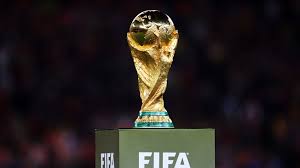By Andrew Warshaw
October 14 – FIFA will decide in January whether to expand the World Cup finals from 32 to either 40 or 48 teams as part of Gianni Infantino’s detailed blueprint for change after eight months in charge of the scandal-wracked organisation.
Stakeholders who take the view that “if it aint broke don’t fix it” will no longer have a say in the matter after Infantino all but admitted that FIFA’s showpiece event needs a definite tweak, probably starting in 2026.
At a briefing at the end of the opening day of the first meeting of FIFA’s new-look Council, Infantino announced major changes to the way the World Cup will be run as part of a wide-ranging strategic plan for the future of the game.
After Russia, FIFA will scrap the idea of a Local Organising Committee to a more centralised management operating system, a controversial move that mirrors that European Championship but seems likely to cause considerable resentment among Qatari officials who have been working for six years on preparing for the 2022 World Cup.
“It is a model which combines efficiency with the local touch that needs to be there,” argued Infantino.
“It has nothing to do with trust. It’s simply to do with efficiency.”
In his election manifesto, Infantino talked of expanding the tournament and has been promoting the idea during recent visits to Africa, Asia and South America. It will now become reality, with discussions focussing on allocating the extra places between FIFA’s six Continental Confederations.
“This is still a work in progress and decisions will be taken in the next council meeting in January. For the time being we are moving forward with the analysis,” said Infantino. “There was a positive feeling around this topic but details are still to be elaborated whether it will be 40 teams or 48 with play-offs at the beginning.
“A decision will be taken at the next meeting . . . but the general feeling is rather positive to an expansion but, before a final decision, we have to do more homework. We have some examples, like the expansion of the European Championship which provided some positive results. Whether we go to 40 or 48 teams we will see in January.
“It was a positive discussion but we didn’t make a voting on the preferred option because it will depend also on the final allocation of the slots.”
“I don’t agree [that expansion] dilutes the quality,” he continued. “For example, in the last World Cup England and Italy were eliminated by Costa Rica so we can see the level of football and the quality is increasing all over the world.”
Under Infantino’s 48-nation plan, teams could end up playing one playoff game at the finals before having to fly home. He denied that this was impractical. “Already teams travel from one part of the world to the next. To go to the World Cup country for a final play-off in order to enter the group stage would be an exciting moment for the countries.”
Turning to the bidding process, Infantino promised that the 2026 World Cup would be “absolutely transparent and bulletproof” and said he would also encourage the idea of co-hosting to reduce expenditure costs. “We want to ensure World Cups are in future sustainable events. That is why, for example, we are in favour of co hosting.”
More controversially, FIFA plans to overhaul its World Cup ticketing policy with much greater in-house control.
“Sadly,” said Infantino, the perception of World Cup ticketing often “goes together with scandals.”
One wonders how Match, FIFA’s long-time Swiss partner which has the ticketing contract through 2018, will view such remarks.
Contact the writer of this story at moc.l1745201990labto1745201990ofdlr1745201990owedi1745201990sni@w1745201990ahsra1745201990w.wer1745201990dna1745201990

